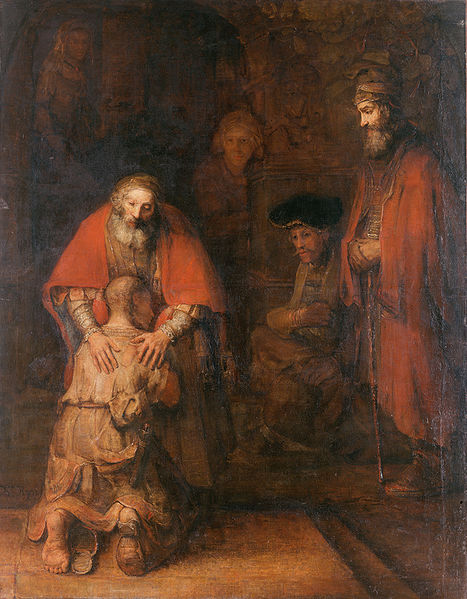This week’s parable points us towards how we are to picture God. It’s the well-known parable of the Prodigal Son, in which a disrespectful younger son demands his share of the family inheritance and promptly spends all the money on wild living. When he is broke, hungry and without friends, he returns home, hoping to be taken on as a hired labourer. His father sees him returning from afar, rushes to welcome and embrace him and throws a big party to celebrate the son who was effectively dead now being alive again.
Most religions claim to offer a source of comfort and guidance. They provide a basis for moral beliefs and ethical behaviours, often provide a sense of community and a connection to tradition. Religions differ significantly, however, when it comes to questions of God, multiple gods or no god at all. The three monotheistic religions – Judaism, Christianity and Islam – all claim that there is one God who is the Creator and who has provided guidelines for how to live a just and holy life. When it comes to Christian faith, the teaching and person of Jesus Christ provide unique insights into the nature of God.
The second, older son hears the music from the party and becomes angry on learning that his father has thrown a party to mark the occasion of his younger brother’s return. This older son is presented as the dutiful, responsible one who always does the right thing, but who resents the father for not honouring him with a party for his many years of faithful service. The father invites the older son to join the celebration, but the parable is left open-ended as to what will happen next.
Jesus’ repeated message – that we know as the gospel – is that God is indeed like the father in the parable – gracious, compassionate, extravagant in love and patient with our shortcomings. We do not have to merit or earn our salvation from God, but rather can receive God’s blessing as a free gift. We call this free gift grace. This is the heart of the gospel message. The challenge for us as Christians is how prepared we are both to receive God’s grace into our own lives and to extend such grace to others.







